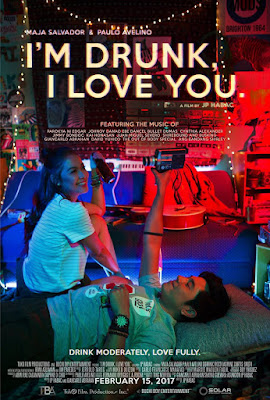CAPTAIN PHILLIPS (Paul Greengrass, 2013)
The name Paul Greengrass is synonymous with heart-pounding suspense. As exemplified by two Bourne films and GREEN ZONE, all topbilled by Matt Damon, Greengrass is well-versed with the kinetic language, which he uses to tell a story. The suspense itself is a palpable element of his movies.
CAPTAIN PHILLIPS, a retelling of the incredible but arduous ordeal of ship captain Richard Phillips against Somali pirates in 2009, is an uneasy exercise in morality. What starts out as a fight for survival gradually becomes an examination of personal motivation. Suddenly, the antagonists are not just plain evil- they have a cause worth fighting for, which is poverty. Poverty that also leads to fear. And in order to overcome that fear, they must elicit that fear into the hearts and minds of their captives.
While the lot of us will still readily associate Somalia with piracy (and a film is yet to be made I think about Somalia which does not involve piracy, unless you'd consider Ridley Scott's BLACK HAWK DOWN, but hey Somalis are still the bad guys there so, back to square one.) after watching CAPTAIN PHILLIPS, at least a more comprehensive and wider perspective into international terrorism will be arrived at. There were four Somalis who successfully boarded the MV Maersk Alabama, and the ship's crew were at least five times their strength, so in the issue of numbers, the Somali pirates are outmanned 5 to 1 (considerably). Yes, they have automatic weapons, and yes, the ship's crew did attempt at a certain point in the film to reclaim their ship and overthrow their unwelcome visitors, but what made the story real interesting is that for three-fourths of the movie, the power is in the hands of the four Somali pirates. And in almost half the film, the action does not take place in the ship anymore, but in a life boat, where Phillips and the four hostage takers are crammed up.
Filmed in almost the same manner as his previous film GREEN ZONE, Greengrass employs a lot of unsteady shots (though not as uneasy and as near-nauseating as the Bourne films) and sharp editing to maximize the adrenaline demand of every scene. Some viewers may even liken the story's treatment as that with Kathryn Bigelow's ZERO DARK THIRTY, seeing as the film's climax also involved a SEAL team operation.
Tom Hanks, clearly put here in incredible amounts of physical strain is calm and composed as the titular character. Basically, Hanks undergoes a similar undertaking here as that of his character in Robert Zemeckis' CAST AWAY, only this time the threat of death is at every passing minute. In a climactic rescue attempt, Hanks breaks his character's emotional strength in a performance worthy of mention as one of the year's best.
The leader of the pirates, played by Barkhad Abdi has a face so prominent you won't easily forget him. Abdi plays the ruthless pirate leader with equal parts determination and compassion, making his character someone you'd want to hate but couldn't.
Showing no reprieve for piracy, but knowingly acknowledging the fact that piracy is deeply rooted in poverty, and in a culture of violent society, CAPTAIN PHILLIPS manages to flesh out an emotional journey between captor and captive, one that cannot easily be labeled, or judged for that matter, because each side has a valid reason worth dying for.
RATING: 5/5


Comments
Post a Comment